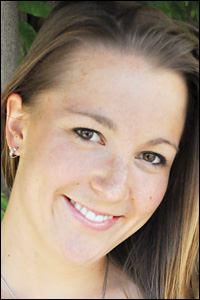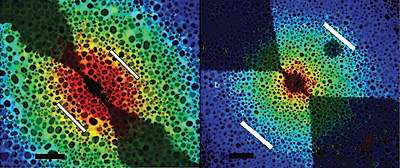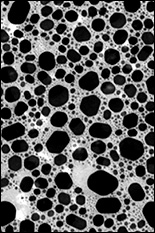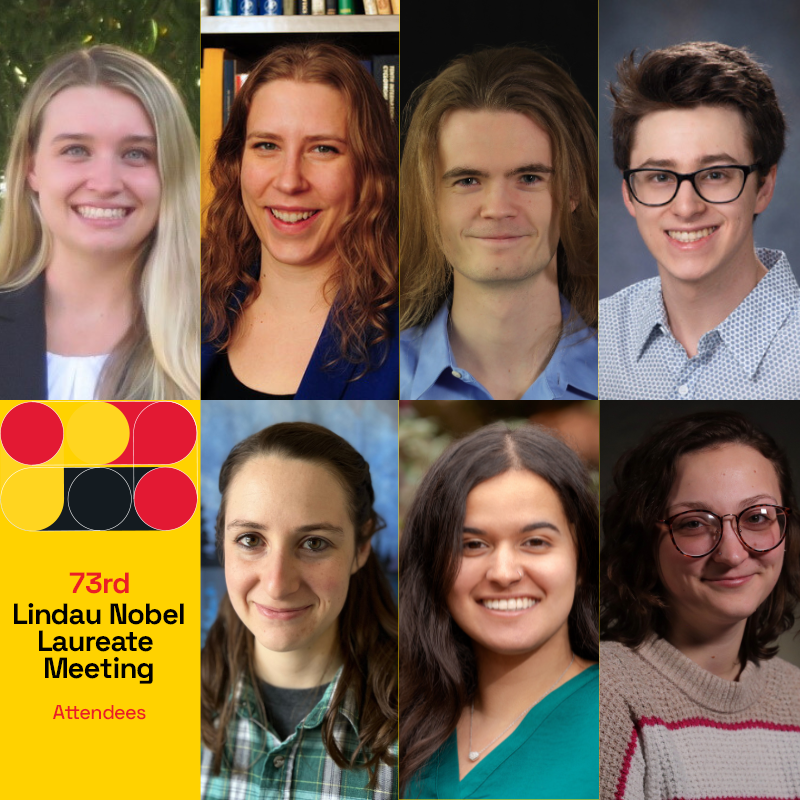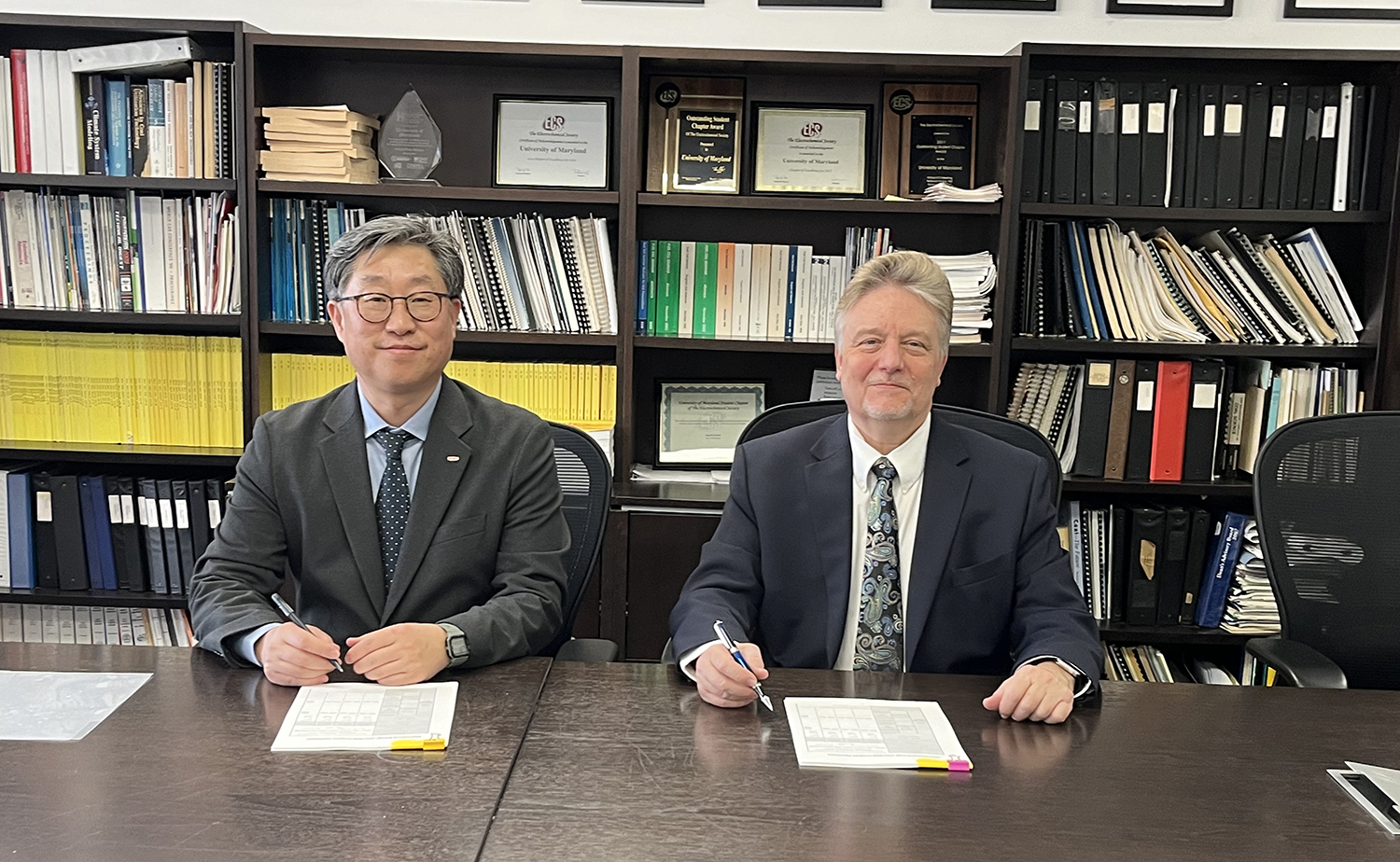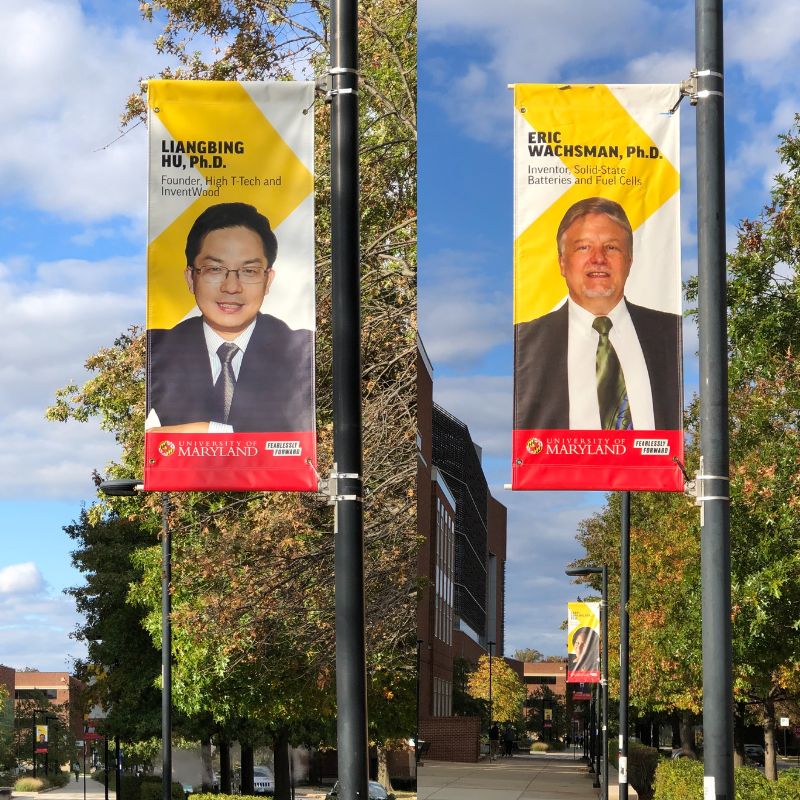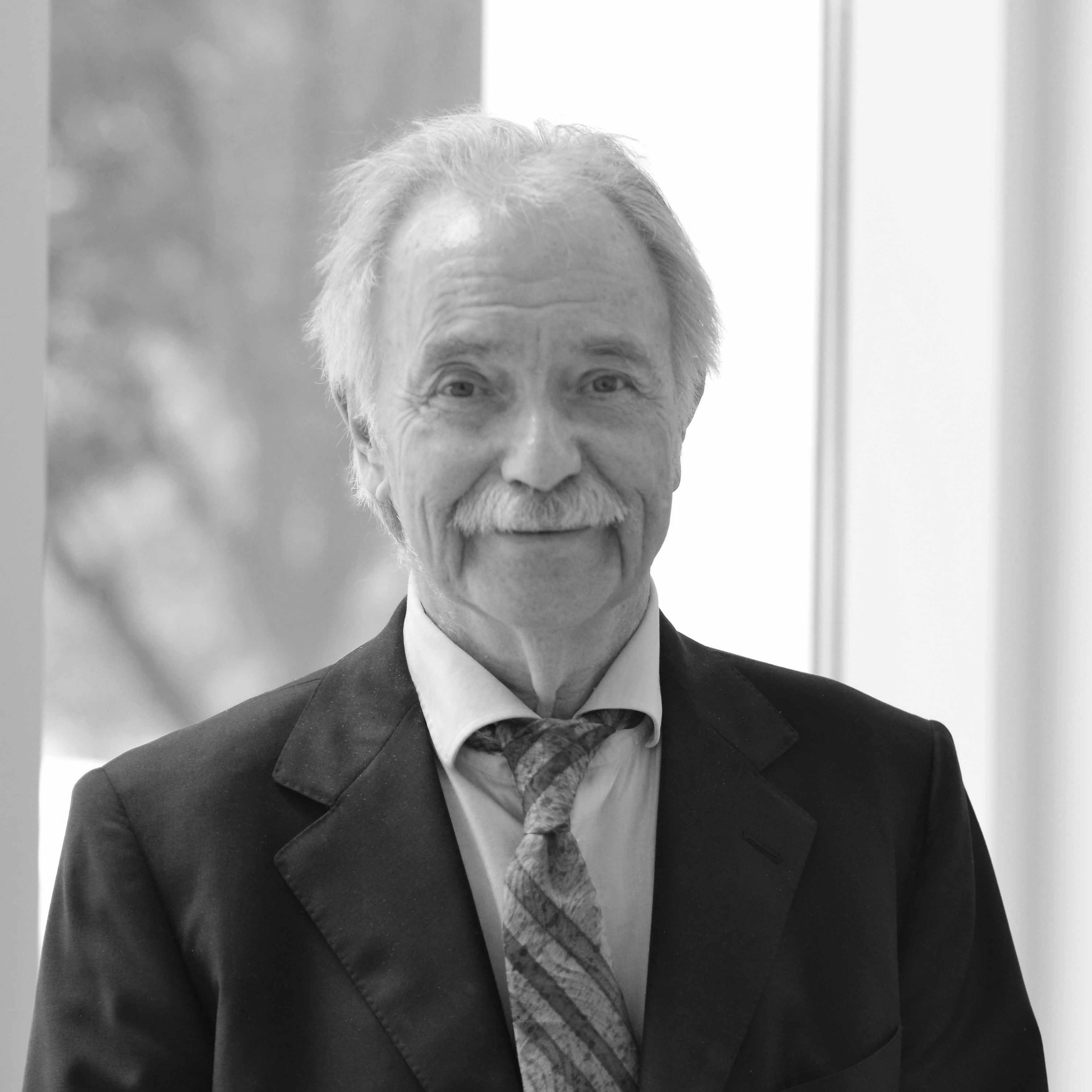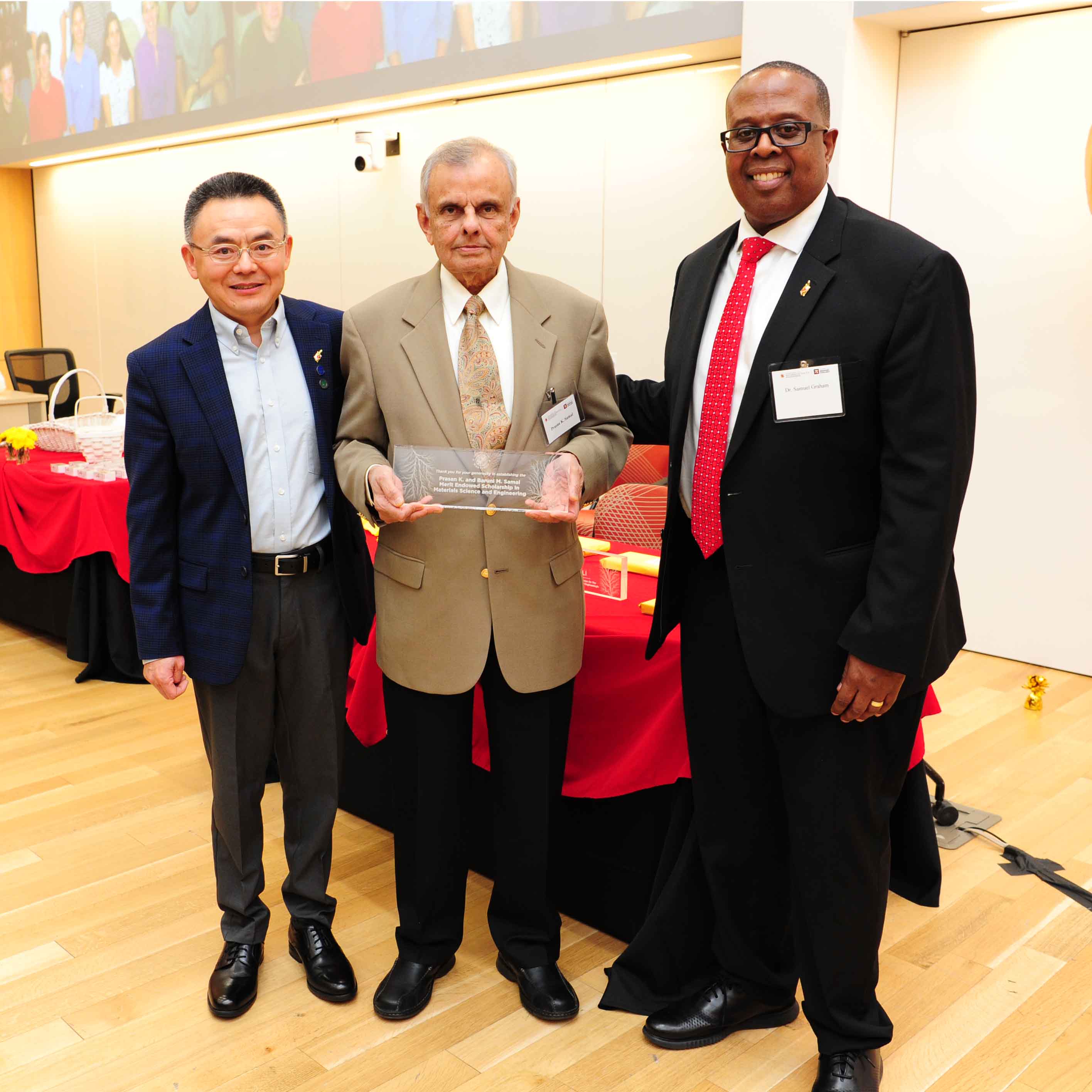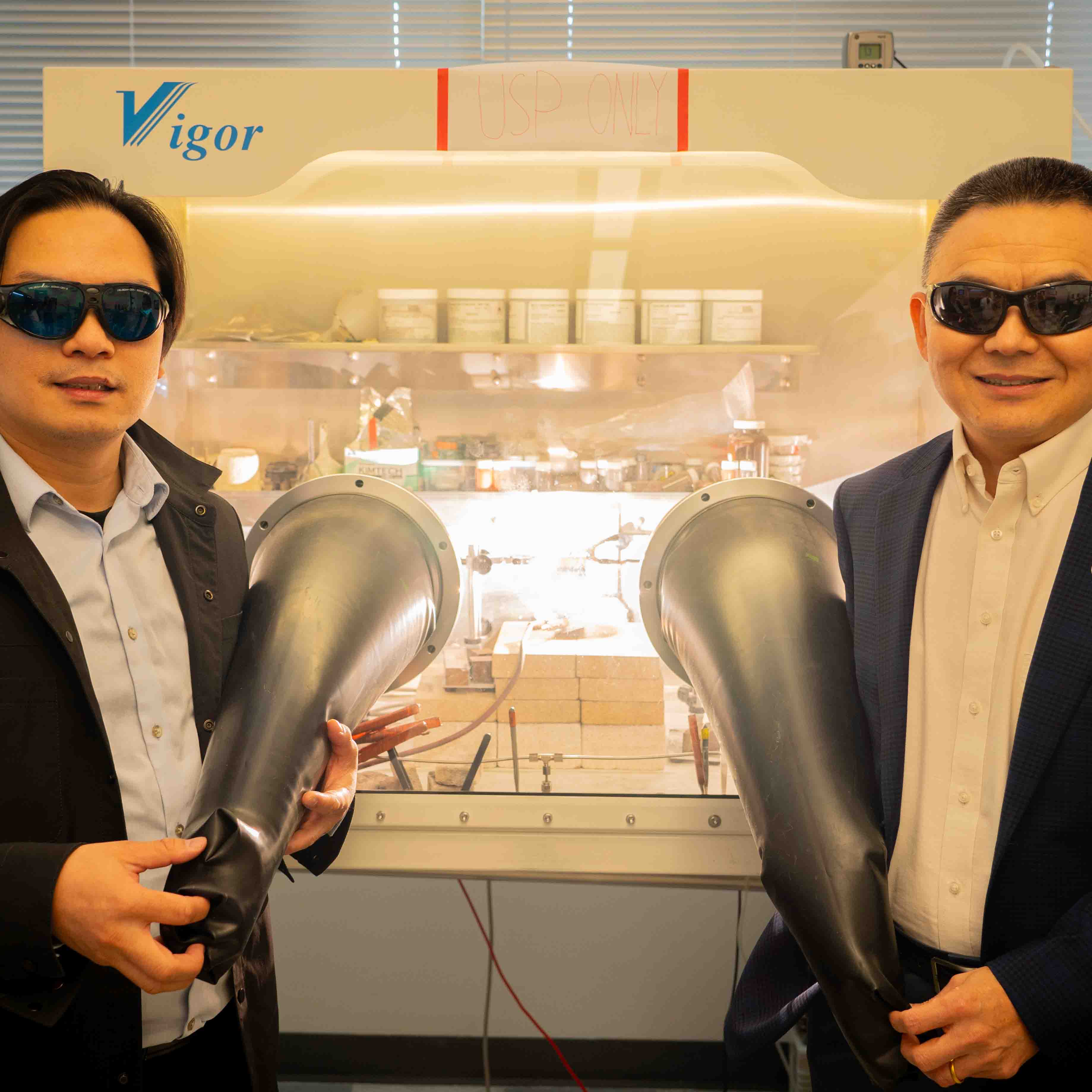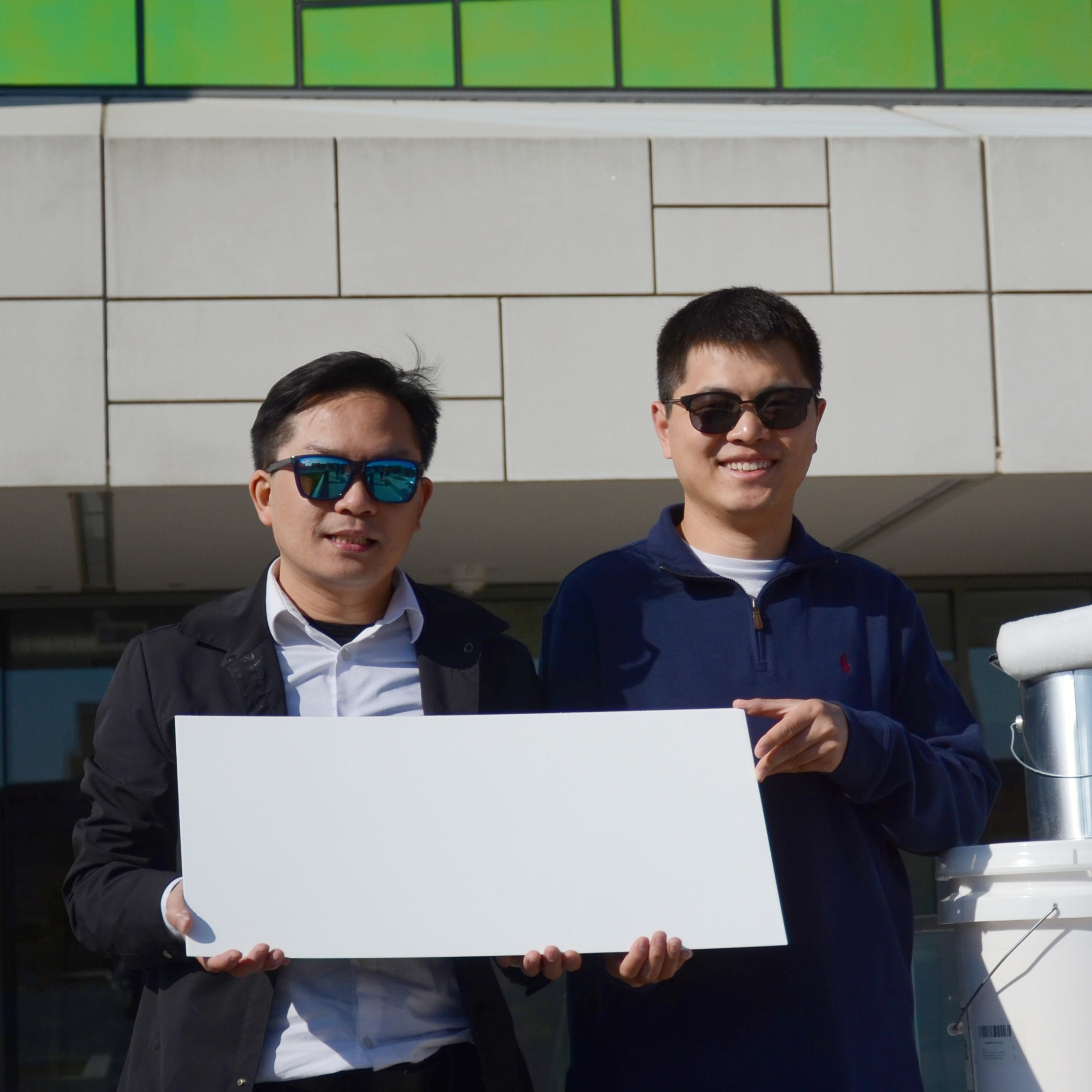News Story
Nilsson Wins Wylie Fellowship
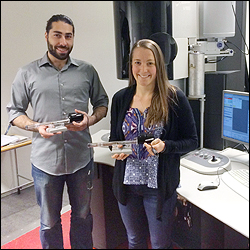
Voskanian (left) and Nilsson (right) in the Titan TEM facility at Chalmers University, with two of the many sample holders that the Eva Olsson Group uses.
Department of Materials Science and Engineering (MSE) graduate student Hanna Nilsson, advised by MSE associate professor and Maryland NanoCenter member John Cumings, has been awarded an Ann G. Wylie Dissertation Fellowship. The fellowship, created for students who are in the final stages of writing their dissertations, includes a stipend of $10,000, candidacy tuition remission and financial assistance toward the cost of health insurance.
Nilsson, the recipient of a 2012 National Science Foundation (NSF) Graduate Research Fellowship, focuses on characterizing the thermal contact resistance and thermal conductivity of carbon nanotubes using an in situ transmission electron microscopy technique called electron thermal microscopy (ETM). Estimated at up to 6,000 W/(mK), carbon nanotubes' theoretically high thermal conductivity should make them ideal for heat management in small-scale electronics, but experimental measurements have shown much lower values because of the tubes' thermal contact resistance.
In 2014, Nilsson received an NSF Graduate Research Opportunities Worldwide (GROW) award, which is currently funding a year abroad at Chalmers University of Technology in Gothenburg, Sweden. There, in Department of Applied Physics professor Eva Olsson’s lab, she uses her expertise in ETM conduct in-situ transmission electron microscopy experiments for the thermal characterization of graphene. Former Cumings Group member Norvik Voskanian (Ph.D. ’14), who also recently joined Olsson’s group, has been working with her on the project.
“Things are good here in Sweden,” Nilsson reported in a recent email. “[Norvik and I] have been able to create an experimental set-up in the lab here that has proven successful in preliminary experiments. We have formed many collaborations here at Chalmers both with chemists who are growing graphene and with theorists who work on calculating [its] thermal properties. These collaborations have been great opportunities to get perspectives outside of physics and material science. I am very excited about the Wylie Fellowship and the freedom it will give me to fully pursue my research through the end of my degree. “
Nilsson is also a Clark School Future Faculty Fellow and Member of the UMD student chapter of the Electrochemical Society.
Published April 20, 2015


